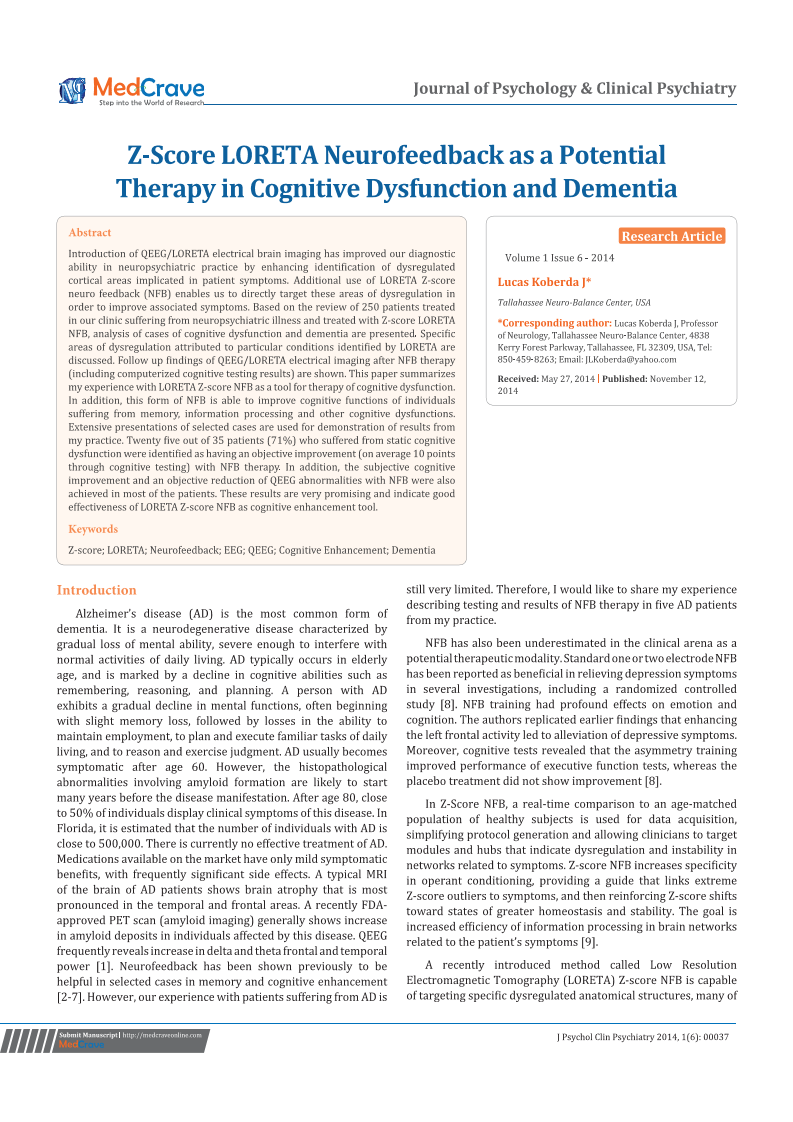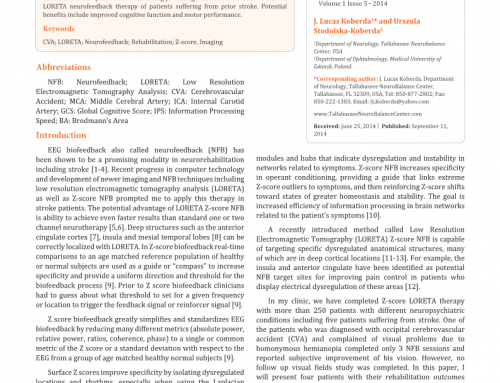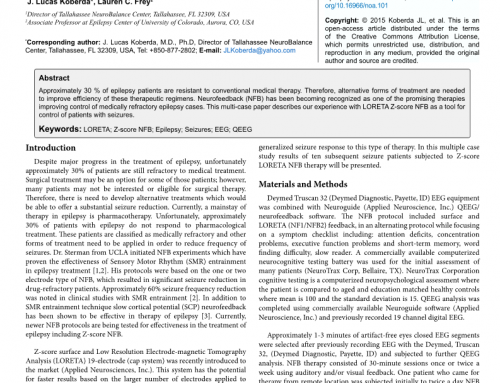Z-Score LORETA Neurofeedback as a Potential Therapy in Cognitive Dysfunction and Dementia Case Study
Journal of Psychology & Clinical Psychiatry
Published November 12, 2014
Click image to read full report.
Abstract
Introduction of QEEG/LORETA electrical brain imaging has improved our diagnostic
ability in neuropsychiatric practice by enhancing identification of dysregulated
cortical areas implicated in patient symptoms. Additional use of LORETA Z-sc ore
neuro feedback (NFB) enables us to directly target these areas of dysregulation in order to improve associated symptoms. Based on the review of 250 patients treated
in our clinic suffering from neuropsychiatric illness and treated with Z-score LORETA NFB, analysis of cases of cognitive dysfunction and dementia are presented. Specific areas of dysregulation attributed to particular conditions identified by LORETA are discussed. Follow up findings of QEEG/LORETA electrical imaging after NFB therapy (including computerized cognitive testing results) are shown. This paper summarizes my experience with LORETA Z-score NFB as a tool for therapy of cognitive dysfunction. In addition, this form of NFB is able to improve cognitive functions of individuals suffering from memory, information processing and other cognitive dysfunctions. Extensive presentations of selected cases are used for demonstration of results from my practice. Twenty five out of 35 patients (71%) who suffered from static cognitive dysfunction were identified as having an objective improvement (on average 10 points through cognitive testing) with NFB therapy. In addition, the subjective cognitive improvement and an objective reduction of QEEG abnormalities with NFB were also
achieved in most of the patients. These results are very promising and indicate good effectiveness of LORETA Z-score NFB as cognitive enhancement tool.
Keywords:
Z-score; LORETA; Neurofeedback; EEG; QEEG; Cognitive Enhancement; Dementia]]>
ore
neuro feedback (NFB) enables us to directly target these areas of dysregulation in order to improve associated symptoms. Based on the review of 250 patients treated
in our clinic suffering from neuropsychiatric illness and treated with Z-score LORETA NFB, analysis of cases of cognitive dysfunction and dementia are presented. Specific areas of dysregulation attributed to particular conditions identified by LORETA are discussed. Follow up findings of QEEG/LORETA electrical imaging after NFB therapy (including computerized cognitive testing results) are shown. This paper summarizes my experience with LORETA Z-score NFB as a tool for therapy of cognitive dysfunction. In addition, this form of NFB is able to improve cognitive functions of individuals suffering from memory, information processing and other cognitive dysfunctions. Extensive presentations of selected cases are used for demonstration of results from my practice. Twenty five out of 35 patients (71%) who suffered from static cognitive dysfunction were identified as having an objective improvement (on average 10 points through cognitive testing) with NFB therapy. In addition, the subjective cognitive improvement and an objective reduction of QEEG abnormalities with NFB were also
achieved in most of the patients. These results are very promising and indicate good effectiveness of LORETA Z-score NFB as cognitive enhancement tool.
Keywords:
Z-score; LORETA; Neurofeedback; EEG; QEEG; Cognitive Enhancement; Dementia]]>



